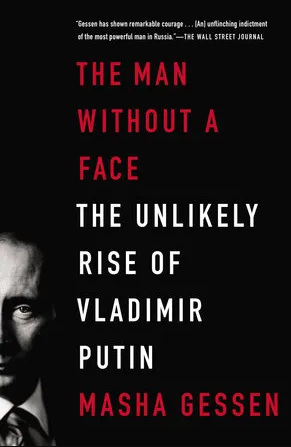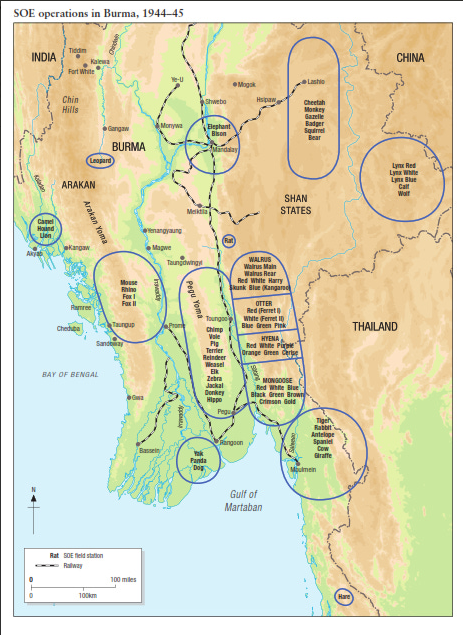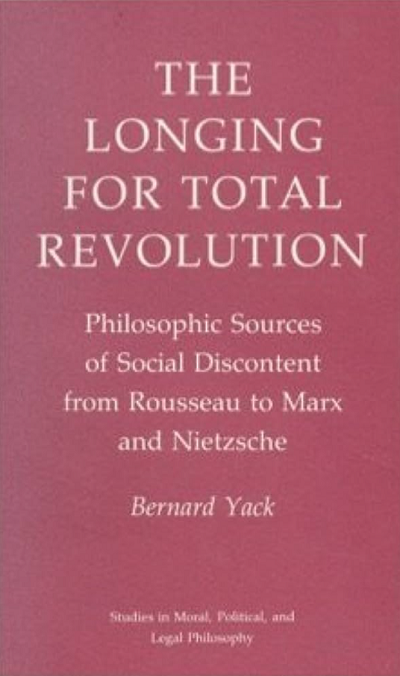Train of Thought
Published 5 May 2023In today’s video, we take a look at the American Orient Express, an attempt made by several businesses to replicate the charm and appeal of the real deal that just kept running into bad luck.
(more…)
August 5, 2023
The rotten luck of the American Orient Express
QotD: Europe
From my observations of the French, they still feel French, indeed quite strongly so. Nearly half a century after the Treaty of Rome, they can’t be said to like the Germans; to think otherwise is to mistake a marriage of convenience for the passion of Romeo and Juliet.
A common European identity therefore has to be forged deliberately and artificially; and one of the imperatives for attempting to do so is the need of Germans for an identity that is not German (the other, which dovetails neatly, is the French drive to recover world power). And since the Germans are very powerful in Europe, by weight of their economy, their need to escape from themselves by absorbing everyone into a new collective identity will sooner or later be perceived in the rest of Europe as the need to impose themselves — as a return to their bad old habits. New identities can indeed be forged, but usually in the crucible of war or at least of social upheaval: not, in the context, an inviting prospect.
Theodore Dalrymple, “The Specters Haunting Dresden”, City Journal, 2005-01
August 4, 2023
Tsar Vlad’s biography
Scott Alexander reviews The Man Without A Face: The Unlikely Rise of Vladimir Putin by Masha Gessen:
Vladimir Putin appeared on Earth fully-formed at the age of nine.
At least this is the opinion of Natalia Gevorkyan, his first authorized biographer. There were plenty of witnesses and records to every post-nine-year-old stage of Putin’s life. Before that, nothing. Gevorkyan thinks he might have been adopted. Putin’s official mother, Maria Putina, was 42 and sickly when he was born. In 1999, a Georgian peasant woman, Vera Putina, claimed to be his real mother, who had given him up for adoption when he was ten. Journalists dutifully investigated and found that a “Vladimir Putin” had been registered at her village’s school, and that a local teacher remembered him as a bright pupil who loved Russian folk tales. What happened to him? Unclear; Artyom Borovik, the investigative journalist pursuing the story, died in a plane crash just before he could publish. Another investigative journalist, Antonio Russo, took up the story, but “his body was found on the edge of a country road … bruised and showed signs of torture, with techniques related to special military services”.
Still, I’m inclined to doubt the adoption theory. Vladimir Putin’s official father, a WWII veteran and factory worker, was also named Vladimir Putin. The adoption story requires that a child named Vladimir Putin was coincidentally adopted by a man also named Vladimir Putin. Far easier to believe that an old Georgian woman had a son who died or was adopted out. Then, when a man with the same name became President of Russia, she assuaged her broken heart by pretending it was the same guy. Records of Putin’s early life are surprisingly sparse. But there are a few photos (admittedly fakeable), and people who aren’t face-blind tell me that Putin looks very much like his official mother.
As for the investigative journalist deaths, it would be more surprising for a Russian investigative journalist of the early 2000s not to die horribly. Both were researching other things about Putin besides his childhood. and had made themselves plenty of enemies. Russo was in Chechnya at the time, another known risk factor for horrible death. I wouldn’t over-update on this.
Still, I found the adoption controversy interesting as a metaphor for everything about Putin. Vladimir Putin really did seem to appear on Earth – or at least in the corridors of power in Russia – fully formed. At each step in his career, he was promoted for no particular reason, or because he seemed so devoid of personality that nobody could imagine him causing trouble. This culminated in his 2000 appointment as Yeltsin’s successor when “The world’s largest landmass, a land of oil, gas, and nuclear arms, had a new leader, and its business and political elites had no idea who he was.”
My source for this quote is The Man Without A Face: The Unlikely Rise Of Vladimir Putin by Masha Gessen, a rare surviving Russian investigative journalist. As always in Dictator Book Club, we’ll go through the story first, then discuss if there are any implications for other countries trying to avoid dictatorship.
Vivek Ramaswamy as “Trump 2.0”
Bari Weiss considers Vivek Ramaswamy as an improved version of Donald Trump, appealing to a similar audience but with less obvious baggage. Here are some excerpts from her recent interview with Ramaswamy:

Vivek Ramaswamy and his family.
Detail of a photo from his campaign website, https://www.vivekramaswamy.com/
BW: Politics is all about storytelling, and the winning candidate — or the candidate that catches fire — is almost always the one with the best story. What is your story, and why is it the story that Americans are craving right now?
VR: Whether Americans are craving it or not, that’ll be for them to decide. But I’ll tell you what my story is. I’m the embodiment of the American dream. My parents came to this country over 40 years ago with almost no money. I’ve gone on to found multibillion-dollar companies that created value by doing valuable things for other people, developing five medicines that are FDA approved today. One of them is a life-saving therapy for kids, another one for prostate cancer. I did it while getting married, while bringing two sons into this world, while following my faith in God, while growing up with the ultimate privilege in this country. And I think the thing that’s extraordinary about that story is that it isn’t extraordinary. It is the story of this country. And I don’t think we’re in decline. I think we are still a nation in our ascent, in the early stages of our ascent actually, a nation whose best days are still ahead. I think it takes someone in my shoes to see our nation that way, too. That’s truly what pulled me into the race.
BW: There’s a lot of people running on a reformist platform. You’re running on a radical or a revolutionary one. You say America needs a second revolution. Many people hear revolution, and they think bloodshed and violence. What do you mean by that, and what does that revolution look like?
VR: To me, it does not mean bloodshed and violence, but it means a revival of the ideals that set this nation into motion in 1776. I do think we live in a 1776 moment. I think that the American bargain was built on the idea that we, the people, determine how we settle our political differences through free speech and open debate in the public square where every person’s voice and vote counts equally. That is self-governance. And I think that there is the Old World vision now rearing its head in multiple forms that says, no, we the people cannot be trusted. The citizens of a nation cannot be trusted to determine what’s actually good for them — so we, the intelligentsia, must make that determination centrally at large. I stand on the side of the American Revolution, the ideals that birthed this nation. I think we live in a moment where we have to confront those radical ideals. I think that the American ideals are very fundamentally radical ideals: self-governance, free speech, like absolute free speech, the idea that you get ahead through unbridled meritocracy, the unbridled pursuit of excellence, the steadfast commitment to the rule of law rather than the whims of men. These are radical ideals, because for most of human history, it was done the other way. I think it is the radicalism of the American Revolution and those ideals that are our last best chance for national unity, because that is what actually binds us together across our diverse attributes. And without embracing that radicalism, I think we’re nothing.
BW: You’re incredibly entertaining. You have a view on everything. You’re a phenomenal talker, which will take you far. And remarkably, as of the latest polls, you’re third behind Trump and DeSantis. But many commentators say that ultimately, you have no shot at the nomination. Why is that conventional wisdom wrong about you?
VR: Everyone seems to be shocked where I am right now. I’m not surprised. This is exactly where we expected to be. The reality is, I think people are hungry for the unfiltered truth. I would rather speak the truth about my own beliefs at every step and lose the election than to play some political Snakes and Ladders. And I believe that our voters across this country have a good sixth sense for being able to tell the difference for somebody who’s actually sharing their true beliefs versus somebody who’s giving them carefully constructed, poll-tested slogans. And that is the competitive advantage. My gut instinct is we’re going to win this election. We’re going to win it in a landslide of a margin similar to what Reagan delivered in 1980.
BW: So you’re going to be the Obama of this race, not the Andrew Yang?
VR: I’m going to be the Vivek Ramaswamy of this race, and that’s what I’m committed to being.
At 7% in the polls at the moment, Ramaswamy is a long-shot to win the Republican nomination, but you’ll know if his chances are improving when the media slow-walks the Bad Orange Man stories and starts criticizing Ramaswamy (or “Bad Curry Man” as some online wits have dubbed him).
What Does A Smoothing Plane Do? | Paul Sellers
Paul Sellers
Published 7 Apr 2023We live in an age when fewer and fewer people will ever use a hand plane and may never even see one in use. This super-short video shows how and why we woodworkers still use and rely on hand planes today. They are fast and effective and they reduce the need for sandpaper too because the wood comes out super-smooth and level.
(more…)
QotD: The “knowledge base” problem in teaching history
Knowledge base. This is both over- and under-supplied in the Biz [teaching history]. If one were inclined to make efforts to remain humble, History is a good place to start, because a) it’s accessible to all, which means b) a lot of your “students” know a LOT more, about a lot more things, than you do. […]
The point is this: Even if I were an expert in that particular field (I’m not; as with Sovietology, I’m a gentleman amateur), there are zillions of people who know more of the details than I do. It seems like half the Internet can reel off, from memory, the entire command structure of the 6th Volksgrenadier regiment. Teach a “Modern Europe” class, and you’re guaranteed to have at least one of them among the studentry. Knowledge, in that sense, is over-supplied.
It’s over-supplied in another way, too. There have been tremendous recent advances in the study of, say, the Roman Empire. Computer modeling of seed-distribution patterns and asdzlsjdfjkha … sorry, my head hit the keyboard, I can’t stay awake for this stuff, but I’m sure glad someone can, because it’s important. As I understand it, there have been revolutions even in older fields like numismatics and epigraphy — you can learn a lot from coins and inscriptions, and they’re changing our understanding of some fundamental stuff (see e.g. Roman coins in Japan).
But knowledge is also under-supplied, especially from the teachers’ side. Not just “knowledge of human nature”, above, though of course that’s a biggie. Here’s a far from exhaustive list of what I was NOT taught in graduate school:
- economics
- military strategy
- ecology
- agriculture
- logistics
- Western languages
- non-Western languages
and so on. Now, some of these you’re supposed to have supplied yourself (e.g. the languages, provided you don’t need them for your specialty, and at one time I could muddle through a few), but nobody checks. Obviously nobody checks when it comes to economics, because everyone in the Biz is a Marxist, and sentence one of page one of any basic economics textbook should read “Marxism is a comprehensive crock of horseshit”, but it works that way for all the others, too. Considering that “farming” and “fighting” are two of the Three F’s that comprise “what almost all humans did, all the time, for all of recorded history”, those are some pretty goddamn big oversights … you know, if actually knowing how humans do is the point.1
Severian, “How to Teach History”, Rotten Chestnuts, 2020-12-23.
1. the third F, for the record, is “fucking”, and like the languages, you’re supposed to have acquired a working knowledge of that on your own before you arrive. Alas, that obviously didn’t work out as planned. The 40 Year Old Virgin wasn’t supposed to be a documentary, but it’s pretty much cinéma vérité in your average graduate program. Trust me: The persyn with bespoke pronouns has them because xzhey have absolutely no idea what to do with their naughty bits. When I say that a night on the town with a sailor on shore leave would cure most of these … organisms … of the majority of their problems, I mean it. Getting eggheads blued, screwed, and tattooed wouldn’t save America, but it would be a damn good start.
August 3, 2023
Behind Japanese lines in Burma – SOE and Karen tribal guerillas in 1944/45
Bill Lyman outlines one of the significant factors assisting General Slim’s XIVth Army to recapture Burma from the Japanese during late 1944 and early 1945:
If Lieutenant General Sir Bill Slim (he had been knighted by General Archibald Wavell, the Viceroy, the previous October, at Imphal) had been asked in January 1945 to describe the situation in Burma at the onset of the next monsoon period in May, I do not believe that in his wildest imaginings he could have conceived that the whole of Burma would be about to fall into his hands. After all, his army wasn’t yet fully across the Chindwin. Nearly 800 miles of tough country with few roads lay before him, not least the entire Burma Area Army under a new commander, General Kimura. The Arakanese coastline needed to be captured too, to allow aircraft to use the vital airfields at Akyab as a stepping stone to Rangoon. Likewise, I’m not sure that he would have imagined that a primary reason for the success of his Army was the work of 12,000 native levies from the Karen Hills, under the leadership of SOE, whose guerrilla activities prevented the Japanese from reaching, reinforcing and defending the key town of Toungoo on the Sittang river. It was the loss of this town, more than any other, which handed Burma to Slim on a plate, and it was SOE and their native Karen guerrillas which made it all possible.
In January 1945 Slim was given operational responsibility for Force 136 (i.e. Special Operations Executive, or SOE). It had operated in front of 20 Indian Division along the Chindwin between 1943 and early 1944 and did sterling work reporting on Japanese activity facing 4 Corps. Persuaded that similar groups working among the Karens in Burma’s eastern hills – an area known as the Karenni States – could achieve significant support for a land offensive in Burma, Slim authorised an operation to the Karens. Its task was not merely to undertake intelligence missions watching the road and railways between Mandalay and Rangoon, but to determine whether they would fight. If the Karens were prepared to do so, SOE would be responsible for training and organising them as armed groups able to deliver battlefield intelligence directly in support of the advancing 14 Army. In fact, the resulting operation – Character – was so spectacularly successful that it far outweighed what had been achieved by Operation Thursday the previous year in terms of its impact on the course of military operations in pursuit of the strategy to defeat the Japanese in the whole of Burma. It has been strangely forgotten, or ignored, by most historians ever since, drowned out perhaps by the noise made by the drama and heroism of Thursday, the second Chindit expedition. Over the course of Slim’s advance in 1945 some 2,000 British, Indian and Burmese officers and soldiers, along with 1,430 tons of supplies, were dropped into Burma for the purposes of providing intelligence about the Japanese that would be useful for the fighting formations of 14 Army, as well as undertaking limited guerrilla operations. As Richard Duckett has observed, this found SOE operating not merely as intelligence gatherers in the traditional sense, but as Special Forces with a defined military mission as part of conventional operations linked directly to a military strategic outcome. For Operation Character specifically, about 110 British officers and NCOs and over 100 men of all Burmese ethnicities, dominated interestingly by Burmans mobilised as many as 12,000 Karens over an area of 7,000 square miles to the anti-Japanese cause. Some 3,000 weapons were dropped into the Karenni States. Operating in five distinct groups (“Walrus”, “Ferret”, “Otter”, “Mongoose” and “Hyena”) the Karen irregulars trained and led by Force 136, waited the moment when 14 Army instructed them to attack.
Between 30 March and 10 April 1945 14 Army drove hard for Rangoon after its victories at Mandalay and Meiktila, with Lt General Frank Messervy’s 4 Indian Corps in the van. Pyawbe saw the first battle of 14 Army’s drive to Rangoon, and it proved as decisive in 1945 as the Japanese attack on Prome had been in 1942. Otherwise strong Japanese defensive positions around the town with limited capability for counter attack meant that the Japanese were sitting targets for Allied tanks, artillery and airpower. Messervy’s plan was simple: to bypass the defended points that lay before Pyawbe, allowing them to be dealt with by subsequent attack from the air, and surround Pyawbe from all points of the compass by 17 Indian Division before squeezing it like a lemon with his tanks and artillery. With nowhere to go, and with no effective means to counter-attack, the Japanese were exterminated bunker by bunker by the Shermans of 255 Tank Brigade, now slick with the experience of battle gained at Meiktila. Infantry, armour and aircraft cleared General Honda’s primary blocking point before Toungoo with coordinated precision. This single battle, which killed over 1,000 Japanese, entirely removed Honda’s ability to prevent 4 Corps from exploiting the road to Toungoo. Messervy grasped the opportunity, leapfrogging 5 Indian Division (the vanguard of the advance comprising an armoured regiment and armoured reconnaissance group from 255 Tank Brigade) southwards, capturing Shwemyo on 16 April, Pyinmana on 19 April and Lewe on 21 April. Toungoo was the immediate target, attractive because it boasted three airfields, from where No 224 Group could provide air support to Operation Dracula, the planned amphibious attack against Rangoon. Messervy drove his armour on, reaching Toungoo, much to the surprise of the Japanese, the following day. After three days of fighting, supported by heavy attack from the air by B24 Liberators, the town and its airfields fell to Messervy. On the very day of its capture, 100 C47s and C46 Commando transports landed the air transportable elements of 17 Indian Division to join their armoured comrades. They now took the lead from 5 Indian Division, accompanied by 255 Tank Brigade, for whom rations in their supporting vehicles had had been substituted for petrol, pressing on via Pegu to Rangoon.
“Tech giants” obey the law and block access to Canadian news sites to Canadian users
For some reason — despite a clamour of warnings from sensible observers — the Canadian government still seems shocked and surprised that the much-reviled “tech giants” have chosen to obey the new Online News Act and are actively blocking links to Canadian media outlets just as the law requires:
For months, supporters of Bill C-18, the Online News Act, assured the government that Meta and Google were bluffing when they warned that a bill based on mandated payments for links was unworkable and they would comply with it by removing links to news from their platforms. However, what has been readily apparent for months became reality yesterday: Meta is now actively blocking news links and sharing on its Facebook and Instagram platforms. The announcement does not reference Threads, but it would not surprise if news links are ultimately blocked on that platform as well. The company says that the blocking will take several weeks to fully roll out to all users, suggesting that it has learned from the over-blocking mistakes made in Australia and is proceeding more cautiously in Canada. By the end of the month, the world’s largest social media platform will become a news desert in Canada, with links to all news – both Canadian and foreign – blocked on the platform.
It is worth revisiting that it was only a couple of months ago that some industry leaders, lobbyists, and academics were assuring the Senate that the Meta threat was just a bluff. Kevin Desjardins of the Canadian Association of Broadcasters, referenced the Australian experience, and told the Senate committee studying the bill that “when legislated to do so, they will come to the table”. Sylvain Poisson of Hebdos Quebec confidently said “they made those threats in Australia and elsewhere and every time they back down”. Chris Pedigo of the U.S.-based Digital Context Next assured the committee “it’s important to understand what happens when these bills become law. In Australia, they moved quickly to secure deals. They have done similar work in Europe, and I expect it would happen quickly in Canada as well.” And Carleton professor Dwayne Winseck said “I am not worried. The threats they are making, they are doing this all around the world.”
Despite the assurances, the company was true to its word and blocking news links is now here. If this is a negotiation tactic, it’s a pretty strange one given that reports indicate the company is not talking to the government about potential changes to a law that has already received royal assent. Indeed, while the new Heritage Minister Pascale St-Onge urged the company to participate in the regulatory process, there is nothing in the regulations that could alter the fundamental principle in the bill of mandated payments for links. At best, the government could toss aside its commitment to stay out of negotiations by using the regulations to dictate to the supposedly independent CRTC how much needs to be spent in order to avoid Bill C-18’s final offer arbitration provisions. Government negotiating total payment value and eviscerating the CRTC’s independence does not inspire confidence and Meta reasonably wants no part of it, since the time to fix Bill C-18 was before it received royal assent, not after.
Bolded section mine: I didn’t realize that it wasn’t just Canadian media links that were being blocked … it’s all news sites in the world being hidden from Canadian users. That’s an escalation from what I’d originally understood. I don’t blame the “tech giants” at all, but it will be tough on older Canadians who’ve been depending on social media to keep them up-to-date on domestic and foreign news.
Webley 1905
Forgotten Weapons
Published 12 Jun 2016William Whiting was an engineer who spent his entire adult career with the Webley company, and was responsible for all of their in-house self-loading pistol designs. This work initially focused on a behemoth of a pistol, the Model 1904 intended for military contracts. The gun proved insufficiently attractive to the British military though, leaving Webley with a large R&D outlay with nothing to show for it. The solution was to scale the system way down and look to the civilian market with a pocket automatic in .32ACP.
The first version of this commercial pocket pistol was this model 1905 design. It proved to be a popular concept, and the gun was revised to address a few shortcomings and opportunities for simplification. In its final version, the Model 1908 would prove to be Webley’s best-selling automatic pistol, and it is still a relatively easy gun to find today. However, its 1905 predecessor is far scarcer, and it is interesting to examine the changes made between the two models.
August 2, 2023
You say you want a revolution …
The latest book review from the Psmiths is Bernard Yack’s The Longing for Total Revolution: Philosophic Sources of Social Discontent from Rousseau to Marx and Nietzsche, by John Psmith:
This is a book by Bernard Yack. Who is Bernard Yack? Yack is fun, because for a mild-mannered liberal Canadian political theorist he’s dropped some dank truth-bombs over the years. For example, check out his short and punchy 2001 journal article “Popular Sovereignty and Nationalism” if you need a passive-aggressive gift for the democratic peace theorist in your life.1 The subject of that essay is unrelated to the subject of the book I’m reviewing, but the approach, the method, and the vibe are similar. The general Yack formula is to take some big trendy topic (like “nationalism”) and examine its deep philosophical and intellectual substructure while totally refusing to consider material conditions. He’s kind of like the anti-Marx — in Yack’s world not only do ideas have consequences, they’re about the only things that do. Even when this is unconvincing, it’s usually very interesting.
The topic of this book is radicalism in the ur-sense of “a desire to get to the root”. What Yack finds interesting about radicalism is that it’s so new. It’s a surprising fact that the entire idea of having a revolution, of burning down society and starting again with radically different institutions, was seemingly unthinkable until a certain point in history. It’s like nobody on planet Earth had the idea, and then suddenly sometime in the 17th or 18th century a switch flips and it’s all anybody is talking about. We’re used to that sort of pattern for scientific discoveries, or for very original ways of thinking about the universe, but “let’s destroy all of this and try again” isn’t an incredibly complex or sophisticated thought, so why did it take so many millennia for somebody to have it?
Well, first of all, is this claim even true? One thing you do see a lot of in premodern history is peasant rebellions, but dig a little deeper into any of them and the first thing you notice is that (sorry vulgar Marxists)2 there’s nothing especially “revolutionary” in any of these conflagrations. The most common cause of rebellion is some particular outrage, and the goal of the rebellion is generally the amelioration of that outrage, not the wholesale reordering of society as such. The next most common cause of rebellions is a bandit leader who is some variety of total psycho and gets really out of control. But again, prior to the dawn of the modern era, these psychos led movements that were remarkably undertheorized. The goal was sometimes for the psycho to become the new king, sometimes the extinguishment of all life on earth, but you hardly ever saw a manifesto demanding the end of kings as such. Again, this is weird, right? Is it really such a difficult conceptual leap to make?
Peasant rebellions are demotic movements, but modern revolutions are usually led by frustrated intellectuals and other surplus elites. When elites did get involved in pre-modern rebellions, their goals were still fairly narrow, like those of the peasants — sometimes they wanted to slightly weaken the power of the king, other times they wanted to replace the king with his cousin. But again this is just totally different in kind from the 18th century onwards, when intellectuals and nobles are spending practically all of their time sitting around in salons and cafés, debating whose plan for the total overhaul of society, morality, and economic relations is best.
The closest you get to this sort of thing is the tradition of Utopian literature, from Plato’s Republic to Thomas More, but what’s striking about this stuff is how much ironic distance it carried — nobody ever plotted terrorism to put Plato’s or More’s theories into practice. Nobody ever got really angry or excited about it. But skip forward to the radical theorizing of a Rousseau or a Marx or a Bakunin, and suddenly people are making plans to bomb schools because it might bring the Revolution five minutes closer. So what changed?
Well this is a Bernard Yack book, so the answer definitely isn’t the printing press. It also isn’t secularization, the Black Death, urbanization, the Reformation, the rise of industrial capitalism, the demographic transition, or any of the dozens of other massive material changes that various people have conjectured as the cause of radical political ferment. Instead Yack points to two abstract philosophical premises: the first is a belief in the possibility of “dehumanization”, the idea that one can be a human being and yet be living a less than human life. The second is “historicism” in the sense of a belief that different historical eras have fundamentally different modes of social interaction.
Both views had some historical precedent (for instance historicism is clearly evident in the writings of Machiavelli and Montesquieu), but it’s their combination that’s particularly explosive, and Rousseau is the first person to place the two elements together and thereby assemble a bomb. Because for Rousseau, unlike for any of the ancient or medieval philosophers, merely to be a member of the human species does not automatically mean you’re living a fully-human life. But if humanity is something you can grow into, then it’s also something that you can be prevented from growing into. Thus: “that I am not a better person becomes for Rousseau a grievance against the political order. Modern institutions have deformed me. They have made me the weak and miserable creature that I am.”
But what if the qualities of social interaction which have this dehumanizing effect are inextricably bound up with the dominant spirit of the age? In that case, it might be impossible to really live, impossible to produce happy and well-adjusted human beings, without a total overhaul of society and all of its institutions. This also clarifies how the longing for total revolution is distinct from utopianism — utopian literature is motivated by a vision of a better or more just order. Revolutionary longing springs from a hatred of existing institutions and what they’ve done to us. This is an important difference, because hate is a much more powerful motivator than hope. In fact Yack goes so far as to say (in a wonderfully dark passage) that the key action of philosophers and intellectuals upon history is the invention of new things to hate. Can you believe this guy is Canadian?
1. Of course, if my reading of MITI and the Japanese Miracle is correct, popular sovereignty may not be around for that much longer.
2. I say “vulgar” Marxists, because for the sophisticated Marxists (including Marx himself) it’s already pretty much dogma that premodern rebellions by immiserated peasants aren’t “revolutionary” in the way they care about.
Britain’s troubling rise in hospital visits due to dog bites
Ed West has a dog, but he admits he’s not really a “dog person”:
Dog breeds have different natures, something that would seem self-obviously true and yet which today the leading authorities in the British dog world seem to be in denial about, in particular when it comes to one of the unspoken trends of recent years – the huge increase in dog attacks.
This spike in dog-bites-man violence has led to a 50 per cent increase in hospital admissions for dog bites over ten years, the biggest rise being among children under the age of 4. Overall the number of fatalities has gone from an average of 3.3 in the 2000s to 10 last year, while dog attacks have risen recently from 16,000 in 2018 to 22,000 in 2022, and hospitalisations have almost doubled from 4,699 in 2007 to 8,819 in 2021/22.
The underlying story behind this escalation of violence is that much of it is the work of just one breed – the American Bully. And as we enter the summer holidays, the peak period for dog attacks, it’s worth pondering why the experts in the dog world are in such denial about the issue.
Public awareness of the American Bully problem has grown in recent months, spurred by some especially horrific attacks, as well as a widely-read article by legal academic and YouTuber Lawrence Newport. Lawrence looked at the data on dog attacks and observed that “a notable pattern emerges. In 2021, 2 of the 4 UK fatalities were from a breed known as the American Bully XL. In 2022, 6 out of 10 were American Bullies. In 2023, so far all fatalities appear to have been American Bullies.”
American Bullies, Newport explains, “are a breed resulting from modern mixes of the American Pitbull Terrier. They are known for very high muscle mass, biting power, and impressive strength, and come in several variations. Those that are bred for the greatest strength, weight and size are known as a part of the American Bully XL variety.”
Pitbulls are banned in Britain for a good reason, and in the US are responsible for “60–70% of dog fatalities“; yet under the Dangerous Dogs Act 1991 “the American Bully XL is currently permitted”.
What is surprising, Newport writes, is that “if you argue these dogs are dangerous, you will get a flood of comments from people … saying it’s the owner’s fault, not the dog’s. You might even be thinking this yourself, right now. But this is wrong. Whilst many Brits would contend that ‘
GunsAmerican Bully XL’s don’t kill people, people do’, the reality is different.“Labradors retrieve. Pointers point. Cocker Spaniels will run through bushes, nose to the ground, looking as if they are tracking or hunting even when just playing – even when they have never been on a hunt of any kind. This is not controversial. Breeds have traits. We’ve bred them to have them.”
Pitbulls were created for bull-baiting, and when that was banned, they came to be bred to hunt down rats in a locked pen. “This required more speed, so they were interbred with terriers to make Pitbull Terriers. In addition to this, they began to be used for dog fighting: bred specifically to have aggression towards other dogs, and to be locked in a pit to fight (some are still used for this today). These were dogs likely kept in cages, away from humans, and bred for their capacity to earn money for their owners by winning fights. These were not dogs bred for loyalty to humans, these were dogs bred for indiscriminate, sustained and brutal violence contained within a pit.”
How Shipping Containers Took Over the World (then broke it)
Calum
Published 5 Oct 2022The humble shipping container changed our society — it made International shipping cheaper, economies larger and the world much, much smaller. But what did the shipping container replace, how did it take over shipping and where has our dependance on these simple metal boxes led us?
(more…)
QotD: The Coolidge years
I washed my car this morning and it rained this afternoon. Therefore, washing cars causes rain.
So-called “progressives” tell us that Calvin Coolidge was a bad president because the Great Depression started just months after he left office.
This is precisely the same, lame argument expressed in two different contexts.
In five years (August 2023), we will mark the 100th anniversary of the day that Silent Cal became America’s 30th President. I intend to celebrate it along with others who believe in small government, but you can bet there’ll be plenty of progressives trying to rain on our parade. So let’s get those umbrellas ready.
Let’s remember that the eight years of Woodrow Wilson (1913-1921) were economically disastrous. Taxes soared, the dollar plummeted, and the economy soured. A sharp, corrective recession in 1921 ended quickly because the new Harding-Coolidge administration responded to it by reducing the burden of government. When Harding died suddenly in 1923, Coolidge became President and for the next six years, America enjoyed the unprecedented growth of “the Roaring ’20s.” Historian Burton Folsom elaborates:
One measure of prosperity is the misery index, which combines unemployment and inflation. During Coolidge’s six years as president, his misery index was 4.3 percent — the lowest of any president during the twentieth century. Unemployment, which had stood at 11.7 percent in 1921, was slashed to 3.3 percent from 1923 to 1929. What’s more, [Coolidge’s Treasury Secretary] Andrew Mellon was correct on the effects of the tax-rate cuts — revenue from income taxes steadily increased from $719 million in 1921 to over $1 billion by 1929. Finally, the United States had budget surpluses every year of Coolidge’s presidency, which cut about one-fourth of the national debt.
That’s a record “progressives” can only dream about but never deliver. Yet when they rank U.S. presidents, Coolidge gets the shaft. If you can get your hands on a copy of the out-of-print 1983 book, Coolidge and the Historians by Thomas Silver, buy it! You’ll be delighted at what Coolidge actually said, and simultaneously incensed at the shameless distortions of his words at the hands of progressives like Arthur Schlesinger.
Lawrence W. Reed, “Cal and the Big Cal-Amity”, Foundation for Economic Education, 2018-07-25.
August 1, 2023
Evil climate heretics deny the revealed holy truth of global BOILING!
Notorious heretic Brendan O’Neill preaches climate denial! Where are the Green Gestapo when you need them?
And just like that we’ve entered a new epoch. “The era of global warming has ended, the era of global boiling has arrived”, decreed UN chief António Guterres last week. It’s hard to know what’s worse: the hubris and arrogance of this globalist official who imagines he has the right to declare the start of an entire new age, or the servile compliance of the media elites who lapped up his deranged edict about the coming heat death of Earth. “Era of global boiling has arrived and it is terrifying”, said the front page of the Guardian, as if Guterres’s word was gospel, his every utterance a divine truth. We urgently need to throw the waters of reason on this delirious talk of a “boiling” planet.
Guterres issued his neo-papal bull about the boiling of our world in response to the heatwaves that have hit some countries over the past two weeks. “Climate change is here [and] it is terrifying”, he said. We see “families running from the flames [and] workers collapsing in scorching heat” and “it is just the beginning”, he said, doing his best impersonation of a 1st-century millenarian crackpot. In fact, forget “climate change”, he said. Forget “global warming”, too. What we’re witnessing is a boiling. It all brings to mind the Book of Job which warned that the serpent Leviathan would cause the seas to “boil like a cauldron”. Leviathan’s back, only we call him climate change now.
The obsequious speed with which the media turned Guterres’s commandment into frontpage news was extraordinary. They behaved less like reporters than like the slavish scribes of this secular god and his delusional visions. “World entering ‘era of global boiling'”, cried the Independent, and we “know who is responsible”. No prizes for guessing who that is. It’s you, me and the rest of our pesky species. It always is. “Planet is boiling”, one headline breezily declared, confirming that Guterres’s fearful phrase, his propagandistic line no doubt drawn up with the aid of spin doctors in some UN backroom, is already being christened as fact.
Almost instantly, media outlets started lecturing readers on how they might help to put a halt to the coming evaporation of our planet. SBS in Australia advised us to “Reduce meat intake”, “Stop driving cars” and “Cut down on flights”. In short, stop all the fun stuff; make sacrifices to appease nature’s angry gods. Even self-styled radicals made themselves mouthpieces of the UN’s medieval sermonising. Novara Media instantly embraced “global boiling” as an apt metaphor for the arsonist impact humanity has had on Earth. Scratch a Marxist these days, find a Malthusian.









